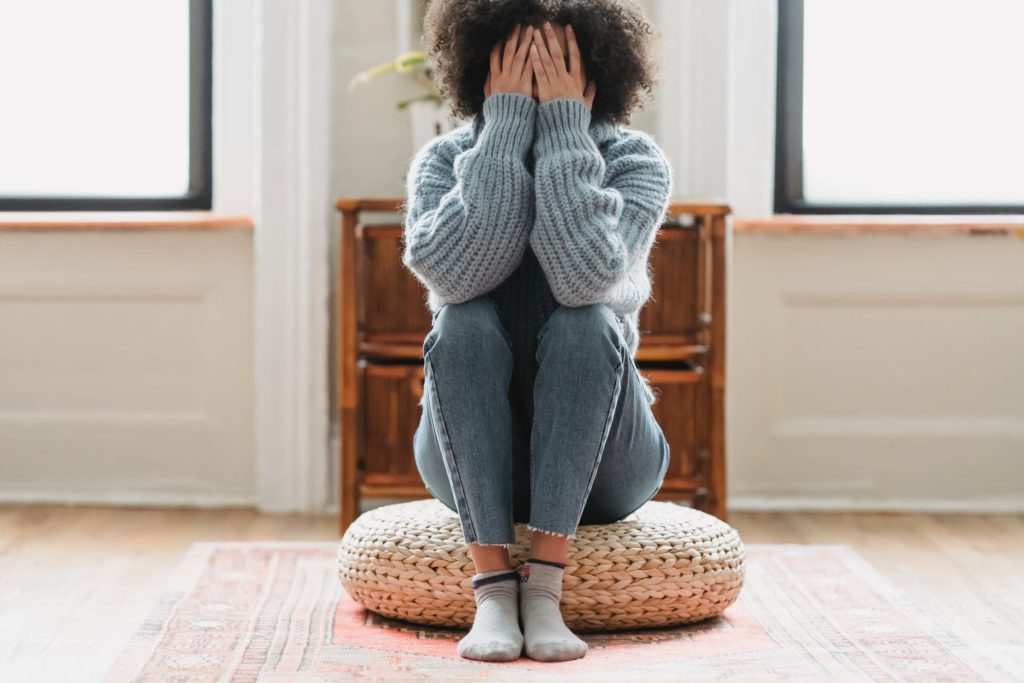TRIGGER WARNING: This article mentions trauma, assault, violence, and other possibly triggering situations.
Upsetting experiences are common while we are alive. There will be situations too that will affect us negatively to a much greater extent, making us experience strong reactions like fear, anger, and shock. These situations and experiences like accidents, the death of a loved one, and violence are called trauma or traumatic events, and they are much more common than we expect.
Around 50% of Americans will experience at least one trauma in their lives, and around 6% will develop post-traumatic stress disorder or PTSD as a result of traumatic experiences. Post-traumatic stress disorder causes a person to feel distressed or to relive heightened emotions related to fear for their safety even when they are not in any apparent danger. It is a serious mental condition that may hinder a person from living a full life.
This article will help you know more about the causes, symptoms, and treatment for PTSD and how it differs in adults and children.
What Is Post Traumatic Stress Disorder
Unsettling feelings, memory flashbacks, and sleep problems are natural responses we may experience after going through a trauma. These anxiety and fear-related reactions may even hinder our daily activities like working, going to school, or socializing. Still, they generally last for only a short period, usually for a few weeks or a few months. Feelings of distress beyond that period usually indicate PTSD.

GENERAL SYMPTOMS
Post-traumatic stress disorder is a complex anxiety disorder. PTSD symptoms vary across populations, but they can be categorized into four main types:
- Re-experiencing: This happens when you or a loved one involuntarily and vividly remember the traumatic event through flashbacks, nightmares, frightening thoughts, memories, and images, and physical sensations (shaking, sweating, physical pain, nausea, etc). This symptom may also be in the form of consistently having negative thoughts and self-doubts, which hinder coming to terms with the trauma.
- Avoidance and emotional numbing: Post Traumatic Stress Disorder causes survivors to avoid certain places, people, or activities that trigger memories of trauma. This may also manifest through spending an excessive amount of time in work, study, or any activity as a distraction and to push the experience out of mind. If you are a survivor of trauma struggling with PTSD, you may even try to engage in alcohol and drugs in an attempt to numb your thoughts and feelings related to the traumatic experiences.
- Heightened arousal and reactivity: Another indicator of PTSD is if you are always ‘on edge’ or find it hard to relax some time after a traumatic event. This is also called hyperarousal, and it entails feeling ‘jittery’ and easily startled or just constantly on guard against possible threats. This may also show up as an irrational outburst in reaction to seemingly harmless stimuli.
- Cognitive, mood, and other symptoms: Additionally, Post Traumatic Stress Disorder causes sudden, often negative changes in a survivor’s feelings and beliefs. These changes can include trouble with remembering details of the trauma, self-inflicted blame and guilt, a sudden disinterest in certain things, and difficulty concentrating. Often, survivors with PTSD also develop a co-occurring mental health condition and physical symptoms such as nausea, vomiting, and aches and pains on various parts of the body.
SYMPTOMS IN CHILDREN AND TEENS
Aside from the general symptoms, some of the signs of PTSD in younger children are:
- difficult behavior
- avoiding things connected to their trauma
- re-enacting events related to trauma through play
- wetting the bed after being potty trained
- sudden inability to talk
- unusual clinginess

For older children and teenagers, their symptoms may be similar to adults. They may also develop destructive, disrespectful, or disruptive behaviors. Feeling guilty for not preventing the traumatic event and thinking of revenge are also manifestations of PTSD in teens.
What Is The Most Common Cause Of PTSD?
The most common cause of PTSD points to trauma or when you go through, witness, or know about an event involving near or actual death, serious injury, or sexual assault. However, it is important to note that not all who have experienced trauma will develop PTSD. Like most mental health conditions, it is a complex mix of risk factors like distressing experiences, biology, environment, and other predispositions.
Some of the risk factors are:
- Gender (women and the LGBTQIA+ community are more likely to develop PTSD)
- Race and ethnicity (Black, Indigenous, and People of Color experience higher rates of PTSD)
- History of mental illness or addiction
- Getting injured or hurt
- Seeing another person gets injured or hurt
- Living through dangerous events (i.e. crime, violence, accidents)
- Poor familial or community support after a traumatic event
To reiterate, it is not clear why certain people develop PTSD while others don’t. Most people will not develop the disorder at all. However, with technological advancements and better research, it will be possible to predict who is likely to develop the disorder and possibly prevent it exactly.
Causes Of PTSD In Adults
There is no exact way to know who will and will not develop PTSD; it can happen to anyone. However, here are common triggers or causes of PTSD in adults:
- physical or sexual assault
- any form of abuse, including domestic and childhood abuse
- severe accidents
- exposure to traumatic events at work (i.e. experiences of first responders, soldiers, health care workers)
- serious illnesses (i.e. being admitted to intensive care)
- war
Causes Of PTSD In Children
Similar to those of adults, the causes of PTSD in children are related to life-threatening events or experiences where children do not feel safe. Common traumas in children that develop into PTSD are:
- experiencing physical, sexual, or emotional abuse
- violence at home (domestic abuse)
- witnessing or experiencing violence in the community (i.e. school shooting)
- facing serious illness or death of a close family member or friend
- sustaining severe injuries
- surviving a serious accident
Generally, the common causes of PTSD in both adults and children are triggered by life-threatening experiences. It may also include events that elicit intense horror, fear, and helplessness. However, it is worth remembering that it is not a sign of weakness. Most risk factors are outside the patient’s control. Removing this stigma will also help you or a loved one seek professional help to start the recovery process.
How Do You Get Over Post-Traumatic Stress Disorder?
Post Traumatic Stress Disorder causes symptoms that can be debilitating for you or a loved one’s growth and development. The good news is that it can be treated, and here are three common approaches used in treating PTSD:
- Cognitive Behavioral Therapy: This therapy addresses PTSD by helping patients manage triggers and other issues by changing how they think and act.
- Eye movement desensitization and reprocessing (EMDR): This therapy involves recalling the details of trauma while making eye movements, usually by following the movement of your therapist’s finger.
- Medications: Often, antidepressants are the most suited medication for PTSD as they help reduce mood symptoms like anger, sadness, and worry. Other medicines can also be prescribed to help with troubles related to sleep.
Constant monitoring is also vital in recovering from PTSD. Of course, having a safe environment where the patient can get constant support will also definitely help.

It is a daunting task to take the first step if you or a loved one exhibits signs of PTSD. However, seeking professional help is often the effective beginning to address the issue. It is even possible to treat PTSD many years after the trauma successfully; it is never too late to seek help.
If you are unsure about your or your loved one’s Post Traumatic Stress Disorder symptoms, we are here to help. Here at Roots Through Recovery, we stay away from a cookie-cutter view of creating treatment plans for our patients. We approach your recovery based on your specific situation, needs, and goals.
Embrace the culture of wellness with us at Roots, located at the heart of Long Beach–a city that offers a diverse community for healing the mind, body, and spirit. Visit us at 3939 Atlantic Ave, Suite 102 Long Beach, CA 90807, or call 562-263-4733 for immediate assistance.





